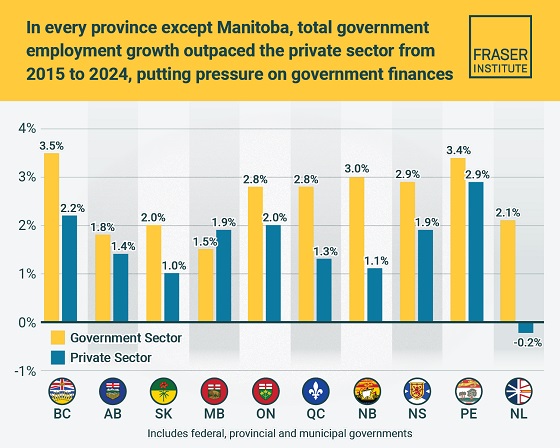Also Interesting
Electricity prices: Canada, USA and Australia

If you’re only used to paying for utilities in one country, you probably have no idea how average prices compare with what consumers pay in other parts of the world.
There are all sorts of variables involved, of course, but it’s interesting to get a broad understanding of the state of play in a handful of major nations. So to that end, let’s explore electricity costs in Canada, the US and Australia.
America
With record gas prices still being recorded, switching to an electric vehicle has never seemed more attractive to US consumers. But if you were to make the leap, would the price of domestic power be a prohibitive factor?
Well, across the OECD countries, the average electricity price sits at just over 24 cents for a kilowatt hour (kwh) of energy. In America, the residential average is just under 14 cents per kwh.
This is impressively low, and comes in spite of the fact that there has actually been a 4.3 percent annual increase in typical costs.
Canada
Some see Canada as holding the key to energy stability. With its ample natural resources and smaller population, it follows in the footsteps of the US by enjoying cheaper than average electricity.
For 2020, Canada’s kwh costs were pegged at around 18 cents. Again, this represents a rise from the previous year, following the general upward trend in power generation expenses globally.
Australia
As a country the size of a continent, with a modest population, Australia has more in common with Canada than the US in many ways.
This is reflected in its electricity market, where competition between energy companies is significant enough to ensure that consumers have access to below average prices for power.
The most recent available stats place Australia’s averages at 19.21 cents per kwh. Interestingly this actually represents the lowest level of pricing seen in the past eight years, which suggests that Australia is actually bucking the trend of the price rises seen elsewhere.
Understanding the factors at play
Now that you have an idea of how much variation there is in electricity costs between three developed, progressive Western nations, it’s worth unpacking what can cause these differences, and what other factors are at play.
First, there’s the part played by the government in terms of taxing the different types of power that are available. In Australia, for example, around a tenth of the total costs that’s passed onto consumers is used to fund environmental programs and counteract the damage done by energy sources still powered by fossil fuels.
Then there’s the cost of actually getting the electricity to the consumer. Australia’s large size and dispersed population mean that building and maintaining the network accounts for almost half the cost of provision. Meanwhile in the US, where there are more than ten times the number of people, the economies of scale make the provision of power more affordable on a per customer basis.
Finally there’s the factor of resources. Whenever a nation needs to import the fuel required to generate electricity, rather than being able to source it closer to home, prices will be higher, and also more susceptible to fluctuations on the global stage.
Final thoughts
For the time being the US is home to cheaper electricity costs than Canada or Australia, but if price rises continue apace then America might eventually overtake its neighbor to the north, and also eclipse its ally in the southern hemisphere.
Consumers in all countries should keep a keen eye on energy prices where they live, and aim to switch to the best value deals from providers where possible.
Also Interesting
Shared Domain Ownership: The Future of Digital Asset Investment

There is a significant amount of change taking place with the Internet and the concept of ownership as well. When you purchased a domain name, there was only one owner of that name who had complete and total control over it.
However, today, a new business model referred to as “Shared Domain Ownership” is rapidly becoming popularized; in other words, multiple parties can collectively own a single domain name. The benefits of this new business model make investing in the Digital Economy easier and more accessible to everyone.
The Rise of Shared Domain Ownership
A domain name represented real estate on the Internet. A premium domain name (i.e., a name that is short, easy to remember, and includes keywords) has traditionally been worth thousands, if not millions of dollars. Instead of having one individual or entity purchase the entire name, people will be able to purchase a portion of the name.
In essence, this concept is similar to purchasing a portion of a company through its units. All owners of the domain have an equal interest in the domain and will collectively determine how to utilize and manage it. The benefits of shared ownership include the ability to distribute the cost of the name among multiple unit holders, owning a piece of a highly valued asset that may increase in value over time.
Accessibility of Domain Ownership
While the primary advantage of this model is accessibility, it also provides the opportunity to participate in the growing Digital Economy that they would otherwise be unable to afford.
Additionally, this model allows community members, small businesses, and start-ups the opportunity to own a domain name that represents their collaborative effort; thus providing a means for these entities to participate equally and profit from their collective efforts.
The Technology of Domain Fractionalization
An important innovation in this space is domain fractionalization, a concept that divides domain ownership into smaller, exchangeable pieces. This is accomplished via blockchain-based platforms such as Freename’s Domora, which enables users to own a domain name collectively.
For example, Freename has developed a platform that enables multiple owners to collectively own a domain name by creating digital units of the domain name. Digital owners will be able to learn more about this concept and how it is changing the way we invest in the Digital Economy through the new brilliant idea of domain fractionalization (Domora’s new platform by Freename), which describes how multiple domainers can collectively own a digital asset such as a premium domain name and manage the asset collectively, and even sell their digital units at a later date.
Benefits of this Model Include:
● Giving the ability to purchase one or more units of a premium domain name.
● Enabling multiple to manage a domain name collectively.
● Enabling them to sell their units of the domain name in the future.
● Therefore, this model represents an exciting combination of technology, shared ownership and collaboration.
The reason why this new concept is interesting
The concept of shared ownership of domains is already attracting the attention of domain enthusiasts engaged in fields such as cryptocurrency and digital assets. Similar to NFTs and tokenized property, domains have become digital real estate, something that can increase their value over time.
It is an opportunity for many to diversify their activities. Through ownership sharing, anyone can own a piece of a premium domain and can reduce the waiting time for a potential buyer to come.
A Step toward a Shared Digital Future
Shared domain ownership is the future of online resources. It incorporates cooperation providing more individuals a chance to participate in the next phase of development of the next internet marketplace.
Freename is demonstrating that ownership does not necessarily require exclusivity. They are contributing to the creation of a more open, fairer, and connected digital world by sharing the value of domains.
Ultimately, the concept is straightforward yet strong: the internet is communal property, and now so can its ownership.
Also Interesting
Slot vs table games: how to decide what to play at a bet casino

When you’re choosing what to play at a casino, the decision often comes down to Slots or table games. Both are popular, but they offer completely different gameplay. For those interested in online chance-based Ireland play, understanding how these formats differ can help guide your choice.
Some players prefer the simplicity and speed of Slots, while others enjoy the structure of table games. Understanding the differences can help you decide which suits your preferences, playing style and budget.
You don’t have to commit to just one. Many players switch between the two depending on their mood, how much time they have, or the type of play they’re after. Whether you’re playing for a few quick spins or settling in for rounds at the Blackjack table, knowing what each format offers helps you make the most of your time.
Slot games
Slots are the most widely played games in any online casino. Their appeal? Simplicity and variety. At their core, Slots use Random Number Generator (RNG) software to ensure every spin is independent and unpredictable. This technology guarantees fairness and means there’s no way to influence or predict what happens next.
Modern Slots go well beyond the traditional three-reel fruit machines. Today, you’ll find thousands of themes covering everything from ancient mythology and popular TV shows to fantasy worlds and classic Vegas-style visuals. These games often feature detailed graphics, animations and sound design, all tailored to the theme.
Most Slots also come with bonus features, which can include free spins, expanding wilds, multipliers and mini games. These are usually triggered by specific symbols or combinations and add another layer to the gameplay. Some games also offer progressive jackpots, where a small percentage of each bet contributes to a growing prize pool.
Table games
Table games cover traditional casino staples like Blackjack, Roulette, Baccarat and various Poker formats. These follow fixed rules and are less reliant on chance alone, especially where decision-making plays a role – like choosing when to hit or stand in Blackjack, or how to bet in Roulette.
Unlike Slots, which are fully automated, table games may use digital dealers or live human dealers streamed in real time. Digital versions use RNGs to determine results instantly, while live dealer games use physical cards or wheels and follow real-world casino procedures.
Table games move at a slower pace than Slots, particularly in live formats where each round is timed. They also often require a basic understanding of rules, especially in games like Blackjack or Poker, where your choices can impact the result.
Things to consider when choosing
Speed of play – Slots are much faster. You can play several spins in a short time, with no waiting between rounds. Table games, especially live dealer ones, are slower as each round has fixed timings.
Simplicity vs decision-making – If you're looking for something based purely on chance with no learning curve, Slots are ideal. If you prefer a game where decisions play a role, table games like Blackjack or Poker might suit you more.
Volatility – Some Slots offer frequent small returns, others less frequent, but potentially with larger payouts. Table games often have a lower house edge and may offer more consistent outcomes over time, making it easier to manage your balance across longer sessions.
Game variety – Slots offer huge variety in terms of themes, features and reel setups. Table games are more traditional, although live casino providers now offer hybrid formats with game show-style twists.
—
Whichever game you choose, it’s important to gamble responsibly. Set limits that work for you, take regular breaks and keep track of how much time and money you’re spending.
Most licensed casinos offer built-in tools to help you stay in control, like deposit limits, session reminders and time-out options.
-

 Artificial Intelligence1 day ago
Artificial Intelligence1 day agoGoogle denies scanning users’ email and attachments with its AI software
-

 Alberta1 day ago
Alberta1 day agoPremier Danielle Smith says attacks on Alberta’s pro-family laws ‘show we’ve succeeded in a lot of ways’
-

 Business18 hours ago
Business18 hours agoBlacked-Out Democracy: The Stellantis Deal Ottawa Won’t Show Its Own MPs
-

 Alberta1 day ago
Alberta1 day agoNew pipeline from Alberta would benefit all Canadians—despite claims from B.C. premier
-

 Business2 days ago
Business2 days agoIs affirming existing, approved projects truly the best we can do in Canada?
-

 MAiD2 days ago
MAiD2 days agoHealth Canada suggests MAiD expansion by pre-approving ‘advance requests’
-

 Health1 day ago
Health1 day agoOrgan donation industry’s redefinitions of death threaten living people
-

 Business2 days ago
Business2 days agoTaxpayers paying wages and benefits for 30% of all jobs created over the last 10 years






